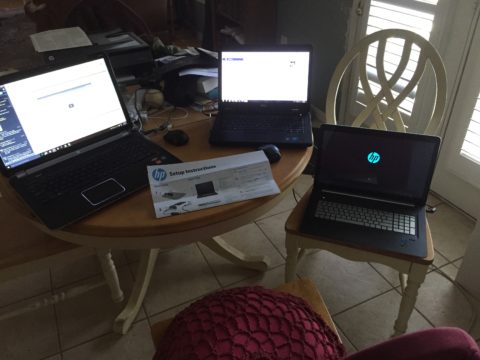I am … unimpressed … with this sudden urge to impose new taxes on people who are currently working from home (I was working from home before it was cool, so I clearly have an interest in this issue). In the Vancouver Sun, Colby Cosh discusses the “wisdom” of this latest proposed tax grab:
This is the first time I have heard this “obvious” idea in any setting, but maybe that’s me. Telecommuting has experienced rapid growth in the decades I’ve been doing it, but before the pandemic it remained more or less at barely detectable levels. [Deutsche Bank economist Luke] Templeman believes that, “Our economic system is not set up to cope with people who can disconnect themselves from face-to-face society. Those who can WFH receive direct and indirect financial benefits and they should be taxed in order to smooth the transition process for those who have been suddenly displaced.”
As Templeman describes it, you would have to have been a crazy idiot not to work from home all along if it were possible. “WFH offers direct financial savings on expenses such as travel, lunch, clothes and cleaning. … Then there are the intangible benefits of working from home, such as greater job security, convenience and flexibility. There is also the benefit of additional safety.”
This would be my own assessment, except for the gibberish parts (job security?), but you will notice that this is the opposite of [Bank of England chief economist Andy] Haldane’s October argument. Haldane thinks there are negative externalities and even net costs to the individual in working from home. Templeman thinks WFH is an inarguable optimum … and is hot as a $2 pistol to disincentivize it.
Does this make sense? Not economically. Templeman is making more of a moral argument that the great shift to WFH is permanent, for which there is some survey evidence, and that it is proper to tax the resulting windfall to ease the adjustment for affected sectors (businesses designed to cater to office workers, basically). This might persuade you, if like Templeman you mistake an “economic system” for the arrangements produced by that system; but if it does, wait till you see how he proposes to do it:
The tax will only apply outside the times when the government advises people to work from home (of course, the self-employed and those on low incomes can be excluded). The tax itself will be paid by the employer if it does not provide a worker with a permanent desk. If it does, and the staff member chooses to work from home, the employee will pay the tax out of their salary for each day they work from home. This can be audited by co-ordinating with company travel and technology systems.
There is more gibberish here, and at least one idea of Godzilla-scale terribleness — an incentive for employers to “provide” a desk for the purpose of shifting the WFH tax onto the employee. Undeterred, Templeman proposes for modelling purposes that the tax could be a flat five per cent of salary (which is also ridiculous if there’s a single eligibility threshold).




